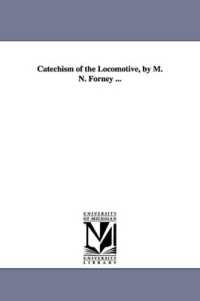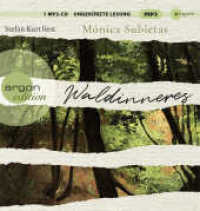Full Description
Teaching and learning paradigms in higher education have been called into question by the COVID-19 pandemic, requiring new approaches, technologies, and resilience. The disruption caused to higher education operations prompted many to raise questions about HEI's adaptability and readiness to handle major disasters.
Focussing particularly on developing countries in Africa and the Global South, The Emerald Handbook of Higher Education in a Post-Covid World emphasizes the urgent need to reform pedagogical models and the importance of recognizing and utilizing digital learning technologies, tools, and the power of the Internet to expand the range of teaching approaches, practices and learning interaction options in an age in which information communication technology and mobile devices have become commonplace in the daily life of students, academic leaders and HE practitioners. The contributors also address the importance of supporting the individual student in learning communities where they are separated by space, and safeguarding their social and emotional wellbeing as they engage and learn through mediated-communication-systems in an era of a fundamentally changed HE environment which will not completely return to previous models.
Providing perspectives from contributors across multiple nations and settings, and written in a forthright, yet engaging manner, this volume is essential reading for higher education staff, researchers, and policy makers, to ensure higher education across the world is prepared to offer the best quality teaching and learning in the Covid and Post-Covid world.
Contents
Introduction: A New Frontier for Higher Education; Byron A. Brown and Alastair Irons
Part 1. Fundamental Changes and Transitions in Higher Education
Chapter 1. Neoliberalism Crisis and Fundamental Shifts in Africa's Higher Education Provision in the 21st Century; Byron A. Brown
Part 2. Emerging Approaches and Practices in Higher Education Pedagogy
Chapter 2. Pedagogical Models of Digital Learning in the United Kingdom: Lessons for Africa; Paula Shaw and Sarah Rawlinson
Chapter 3. Teaching Approaches, Social Support and Student Learning in the Non-traditional Classrooms in Higher Education; Byron A. Brown
Chapter 4. Gamification: Teaching a Practice-based Subject Virtually for Transformative Impact; David Graham, James Ellerby, and Norman Dinsdale
Chapter 5. Reforming Emergency Remote Teaching Through the Evaluation of Practice in Higher Education; Byron A. Brown
Chapter 6. Shifts in Pedagogy and Flexible Assessment: Integrating Digital Technology With Good Teaching and Learning Practice; Sam Elkington
Chapter 7. Blockchain Technology in Teaching, Learning and Academic Administration as a Long-term Solution to Emergencies in Higher Education; Byron A. Brown
Chapter 8. Humanising Pedagogy in Times of the COVID-19 Emergency: Student and Academic Voices in South Africa; Leila Kajee
Chapter 9. Student Interaction and Engagement Supported by Blended Learning Tools in Emergency Teaching; Lelokwane Mokgalo, Alice Njoroge, and Mercy Musikavanhu
Chapter 10. Cybersecurity in the Digital Classroom: Implications for Emerging Policy, Pedagogy and Practice; Alastair Irons and Tom Crick
Chapter 11. Online Safeguarding and Personal Cyber Skills for Students; Andy Phippen and Emma Bond
Part 3. Culture and Policy Concerns in a COVID-19 Higher Education World
Chapter 12. Policy Gaps and Imperatives for Rebuilding Sustainable African Tertiary Education Systems Disrupted by COVID-19; Theophilus Mooko
Chapter 13. Cultural Influences in Online Pedagogy and the Final-ends of African Higher Education; Byron A. Brown and Olivia Nthoi
Chapter 14. Summary, Conclusions and Next Steps; Alastair Irons and Byron A. Brown








